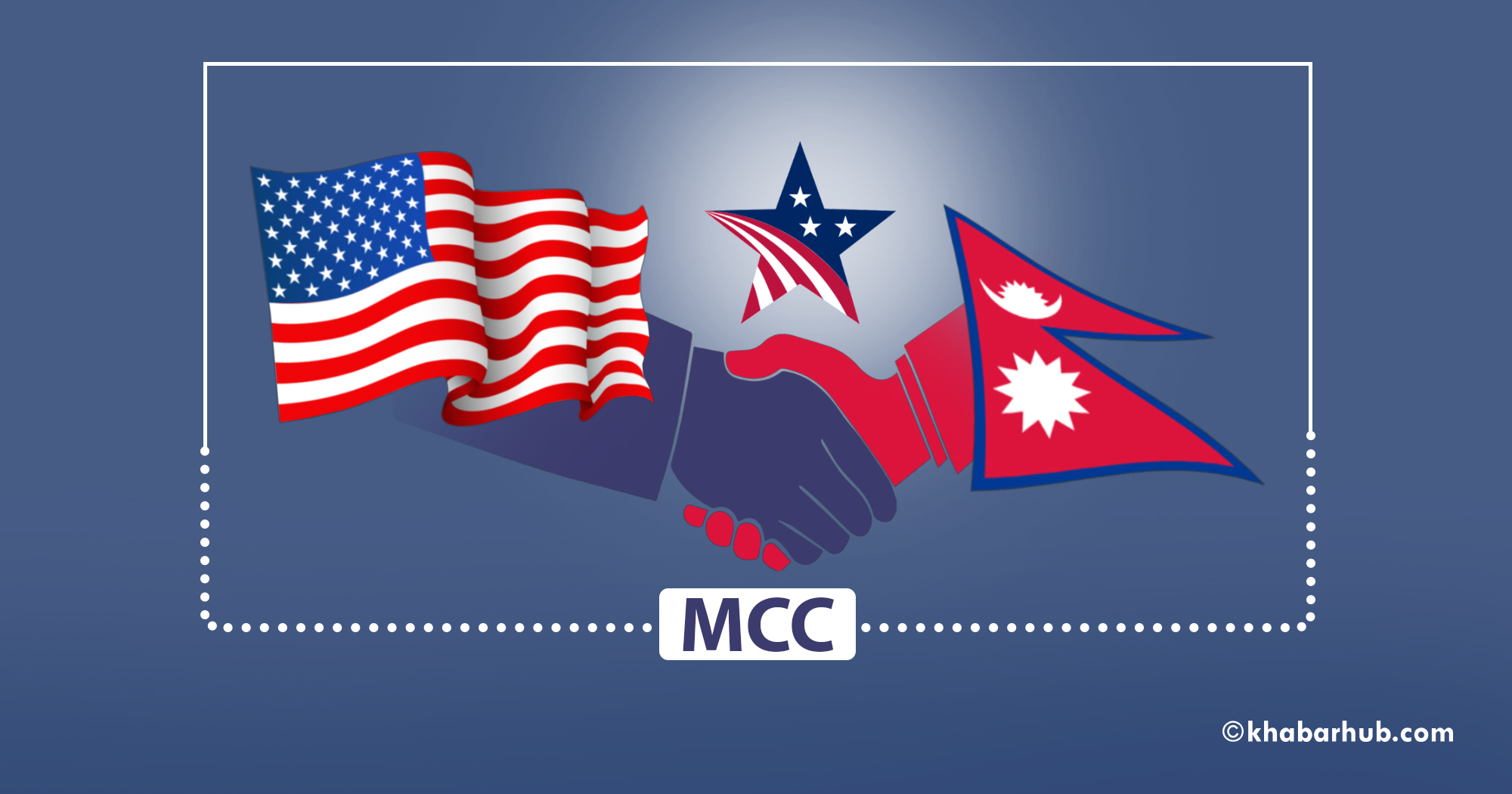0%

KATHMANDU: Prime Minister (PM) Sher Bahadur Deuba and Maoist Center Chairman Pushpa Kamal Dahal Prachanda are under pressure to ratify the Millennium Challenge Corporation (MCC) Compact by February 28 – a deadline set by them to the MCC Board of Directors.
PM Deuba and Prachanda had on September 29, 2021, written a letter to the MCC Board of Directors setting a deadline to ratify MCC Compact by February 28.
Now that the deadline is approaching, PM Deuba has been frantically making efforts to woo other party leaders, including CPN-UML Chairman KP Oli Oli.
The two leaders –Deuba and Prachanda – been well-aware of the fact that failure to ratify MCC within the stipulated date (set by them) will result in unfortunate circumstances as Fatema Z Sumar, Vice President at MCC Compact Operations has clearly said that failure to do will end MCC’s partnership with Nepal.
The MCC Board of Directors is discussing its next move on March 22 this year.
In the letter, PM Deuba and Prachanda have said they “acknowledge with appreciation” the MCC Compact signed between the US and Nepal on 14 September 2017 and “jointly make a request to the MCC Board for providing additional time for the ratification of the Compact.”
“MCC requests that you continue to work with Parliamentarians and coalition partners to ratify the Compact by the timeline indicated in your letter, no later than February 28, 2022,” a letter addressed to PM Deuba and Maoist Chairman Prachanda by MCC Board, said.
The two leaders had discussed the issue during the visit of Fatema Z. Sumar, Vice President, MCC, last year.
As per the provision that the final process for the implementation of MCC should be ratified by the parliament, the then government led by KP Sharma Oli registered it in the parliament on July 15, 2019.
The government has been making all efforts possible towards this end, the letter said, adding, “We want to assure you of Government of Nepal’s interest in securing the MCC grant and implement- go it for the economic development of Nepal.”
The two leaders have also said that they “would decide in the next four-five months to secure a required majority in the House of Representatives for the ratification of the Compact.”
“We specifically commit to discussing the clarifications received from MCC with all the coalition partners to better inform our party members,” the letter has said.
Meanwhile, in an interview with a national daily, Fatema has clearly stated: “Without ratification, it is within the MCC Board’s authority to discontinue Nepal’s eligibility to receive the 500 million dollar grant from the United States. Such a decision will effectively end MCC’s partnership with Nepal.”
Meanwhile, former Prime Minister and Chairman of the Federal Council of the Janata Samajwadi Party, Dr. Baburam Bhattarai has reinforced the need to ratify the MCC without further delay.
Bhattarai has reiterated the need to pass the MCC from the Parliament on the basis of consensus, and by making the people understand its importance.
“Let’s pass the MCC in the parliament unanimously,” Dr. Bhattarai tweeted last week.
The MCC Nepal Compact, which had to be implemented long back, is still an issue of discussion in Nepal.
As per the provision that the final process for the implementation of MCC should be ratified by the parliament, the then government led by KP Sharma Oli registered it in the parliament on July 15, 2019.
The MCC proposal, which has been registered in the parliament, instead of bringing it for discussion with priority has been entangled in baseless rumors and internal politics.
Even though the Prime Minister and Nepali Congress (NC) President Sher Bahadur Deuba has pledged to ratify the MCC Compact from the ongoing session of the parliament, the process has not started yet due to various internal reasons — mainly political bickering.
The government’s failure to move the process forward in parliament has courted further confusion, controversy and debate over the MCC.
Meanwhile, Krishna Gyawali, former Secretary said MCC had come to Nepal for reducing poverty by providing grants in the country’s priority sector.
“MCC has no time overruns or project over-cost,” Gyawali argued, adding, the project must complete within 5 years after the implementation of the Compact.
The project must be ratified by the parliament in accordance with Nepal’s law. “We must believe in diplomacy, otherwise, Nepal’s trust will deteriorate,” he said.
Foreign affairs expert, Arun Kumar Subedi said, “There is an overflow of the negative comments on MCC, so it becomes hard now to justify MCC is for the country’s development,” he said.
Subedi added that the government should receive MCC from a developmental angle.